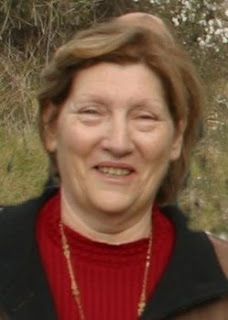Monday, April 14, 2008
Previous Question Papers For Moh In Qatar
International Study Institute UQAMERCOSUD
PROJECT DESCRIPTION In 2008, the University of Quebec at Montreal will conduct two graduate seminars in Uruguay, for Canadian students and the Americas, with emphasis on the MERCOSUR. The main themes this year are:
1) New political contexts in MERCOSUR
2) Communication and health. Socio-political and institutional challenges.
From 29 June to 23 August, four teachers from the UQAM present and discuss various issues relating to those topics, from the perspective of comparative studies between Canada and Uruguay. The courses will be taught in English, in the form of 3 modules of 15 hours each, Monday through Friday from 9 am to 12 pm. (See course schedule below). The modules can be taken independently. Intermodule periods will be devoted to field research and lectures at local and international institutions.
WHO CAN APPLY?
The program is open to students of the master or last year of high school, both I'UQAM as other universities in the Americas, or candidates with expertise training. Given the geographic proximity, MERCOSUR students are invited too especially the seminars to promote diversity of views, the comparative perspective and cultural and academic exchange. Although the views of communication and sociology will be addressed as a priority, students from other disciplines are also welcome. CREDITS AND EVALUATION
mastery students will receive 9 credits for their participation in the project. The seminars can be taken independently by modules. Receive a diploma from UQAM and universities Uruguayan counterparts to complete the requirements for assessment (participation in seminars, working and writing according to criteria to be shown on each course.)
Project Management, UQAM: Prof. Carmen Rico
, PhD: rico.carmen uqam.ca @ 1-514-987-3000 # 4543
Mathieu Etienne Gagnon (research assistant): gagnon.mathieu- etienne@courrier.uqam.ca
COURSE ON THE INTERNATIONAL INSTITUTE UQAMERCOSUD:
"NEW POLITICAL CONTEXT IN MERCOSUR: discourse and ideology"
Professors: Victor Armony, with the collaboration of Carmen Rico, UQAM
Montevideo Monday, June 30 through Friday July 4, 2008, 9am to 12pm
Thursday, April 10, 2008
Sample Of Vote Of Thanks At Wedding
Les Québécois et la norme. L'évaluation par les Québécois of leurs usages linguistiques (Jacques Maurais, mars 2008)
Monday, April 7, 2008
Infiniti Eurosport 950

In addition, there were "bosses" who went to Mass
Letter Of Encouragment Conformation
Lest We Forget
As we walked in the countryside around our village, we pass without seeing ...
These are the crosses, discreet, part of the landscape.
There are two kinds:
1. Cross the crossroads
... hence the term "crossroads"
2. The crosses at the corners near the villages of vines
formerly known as "Cross rogations"
The Rogation processions of supplication were instituted in the fifth century, and
taking place on the day of St. Mark (April 25) and
3 days before ascent.
They were intended to attract the blessing Divine on crops and animals. (Larousse)
The derogations have replaced "ambarvales" Roman, who were rural processions in honor of Ceres.
So there were several crosses (3 or 4) Abeilhan which served as stations for derogations. There were perhaps recently restored the cross at the corner of the former vineyard of Mr & Mrs Laura, and the face at Domaine Jean-Claude Lotantique Crebassa.
The one is sure of his position, because we have a document mentioning it is the "cross Gentleman" that is ente Abeilhan Coulobres and, at the tip of a vine Michel Cros.
Hereabstract document addressing the "cross gentleman"
May 09, 1866, eve of the ascent, Jean-Jacques Pailhès when the village priest (he ranked and copied the annals Abeilhan ) after obtaining the permission of Bishop Lecourtier Bishop of Montpellier, was solemnly blessed cross that Mr. Savy Ferdinand had built on his rural property in lieu of another very ancient cross, called the gentleman, recently overturned and broken by the shock of a cart. Here is what the Abbot said Pailhés:
"As this cross from time immemorial, has been and still is the point of the third stational Rogation procession, we took that day when the whole population was gathered to perform the above blessing "
Signed Pailhés Cure
Initially, all crosses were entirely of stone as you can see in the surrounding communities, as Coulobres example.
Now at Abeilhan if the drums are still made of stone, iron crosses are more or less worked (we're talking about those continue ... because unfortunately a lot is completely gone)
Here below, reported by the President of our association, a dramatic event that took place in our village, circa 1908-1910.
Saturday, April 5, 2008
What Are The Advantages Of Chemotherapy
note my brother in the newspaper Ariel The Nation (Argentina) on recent developments in Argentina: http://www.lanacion.com.ar/opinion/nota.asp?nota_id=1001407&origen=4ta&toi=&pid =
Wednesday, April 2, 2008
Insulated Cooler Panels
"... the Arabs and Latin Americans are visible minorities who recorded the fastest growth in Quebec. The Census of 2006 counted 109.000 Arabs, an increase of 48.6% over 2001, and 89.500 American, an increase of 50.4%. Arabs make up 16.7% of the visible minority population of Quebec, the second most important, and Latin Americans, representing 13.7% of the population of visible minorities, ranked third in that matter. "
" Latin Americans in Quebec ... mostly born abroad, mostly come from South America and Central America. About a third (32.5%) of foreign-born Latin Americans have immigrated to Canada between 2001 and 2006. Colombia, El Salvador, Peru and Mexico are the main source countries of Latin Americans. "
(My translation)
To view the full report, do click here.
My comment: beyond what is interesting about these data, the obvious question for many Latin American immigrants is "we are a visible minority?". In many individual cases, this can considered as well. But in general we can speak of the Colombians, Peruvians or Mexicans as a visible minority population?